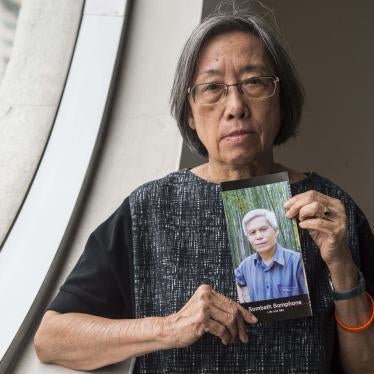This week, parliament will debate changes to national security laws intended to keep Australians safe. But parliament shouldn’t rush to adopt laws that infringe on basic rights and that risk criminalising the legitimate actions of whistle-blowers, journalists and human rights activists.
Under proposed amendments to national security laws, anyone who discloses information related to a “special intelligence operation” could face up to five years in prison. The penalty increases to 10 years if the information endangers lives. The legislation is vague as to what exactly could be considered a “special intelligence operation.” But in a post-Snowden and Wikileaks world, we know that simply cloaking something as “special” or “classified” doesn’t mean it should automatically be free from scrutiny.
Punishing those who leak security information or publish it can be problematic because it suppresses information that may be vital for the exercise and protection of human rights, accountability and democratic governance. Some of the most significant revelations of human rights violations come from disclosures of once-secret information relating to the misconduct of security agencies. If this amendment passes, lawyers, journalists and activists could be prosecuted simply for doing their jobs of holding the government to account.
The offence even seems to apply to users of social media who share leaked information by reposting it on Facebook or Twitter. As it stands, the offence covers “recipients of an unauthorised disclosure of information” who “engage in any subsequent disclosure.” Intention to cause harm is not required and it doesn’t matter if another person read, heard, or viewed the information in question – just the act of making it available to others would be sufficient.
The government has said it will adopt all recommendations of the parliamentary joint committee on intelligence and security which released its report last week. It recommended the law be clarified to ensure that prosecutors take into account public interest before initiating a prosecution. But leaving it up to prosecutorial discretion isn’t enough. Having an offence on the books will chill reporting on these issues, because journalists and editors will think twice before risking prison time.
The committee recognised the “need for secrecy not to penalise legitimate public reporting,” but considered increased governmental oversight over the conduct of such operations and existing legal safeguards sufficient protection. The safeguards in question would require the prosecution to prove if it brought a case against someone for disclosing information that the disclosure was “reckless”.
But a provision requiring “recklessness” will be of no help to a whistleblower or journalist whose purpose is not to endanger security but to expose government abuse.
It’s very dangerous to democratic values to introduce such sweeping laws to gag publication of sensitive materials. The United Nations Human Rights Committee has noted that governments must take “extreme care” to ensure that laws relating to national security are not invoked “to suppress or withhold from the public information of legitimate public interest that does not harm national security” or to prosecute journalists, researchers, activists, or others who disseminate such information.
Another very worrisome proposal to grant immunity from civil and criminal prosecution to intelligence officials for acts committed in the course of security operations other than for a narrow set of misdeeds, such as killing, sexual abuse, or “serious” injury or property damage. As senator David Leyonhelm has noted, there are legitimate concerns that such immunity could cover criminal acts such as use of torture during interrogations. The government has said this will not be the case, but it should expand the list of acts that don’t involve immunity to include torture.
Prime minister Tony Abbott gave a speech in 2012 at the Institute for Public Affairs in which he referred to the coalition as the freedom party. “Essentially, we are the freedom party,” he said. “We stand for the freedoms which Australians have a right to expect and which governments have a duty to uphold. We stand for freedom and will be freedom’s bulwark against the encroachments of an unworthy and dishonourable government.”
These new laws do indeed encroach upon freedom of speech and a free press by seeking to retaliate against those who publish information about special intelligence operations. Abbott should not let hysteria over terrorism be used to thwart the freedom agenda he once claimed to hold so dear to the coalition’s heart.
While not every leak deserves protection, whistle-blowers, journalists and human rights activists play a crucial role in revealing misconduct or unethical policies in the public interest. Australia already has a raft of measures in place to limit the disclosure of classified information including strict penalties for terrorism and espionage. Amendments that chill free expression will not protect Australia’s democratic values but undermine them.







